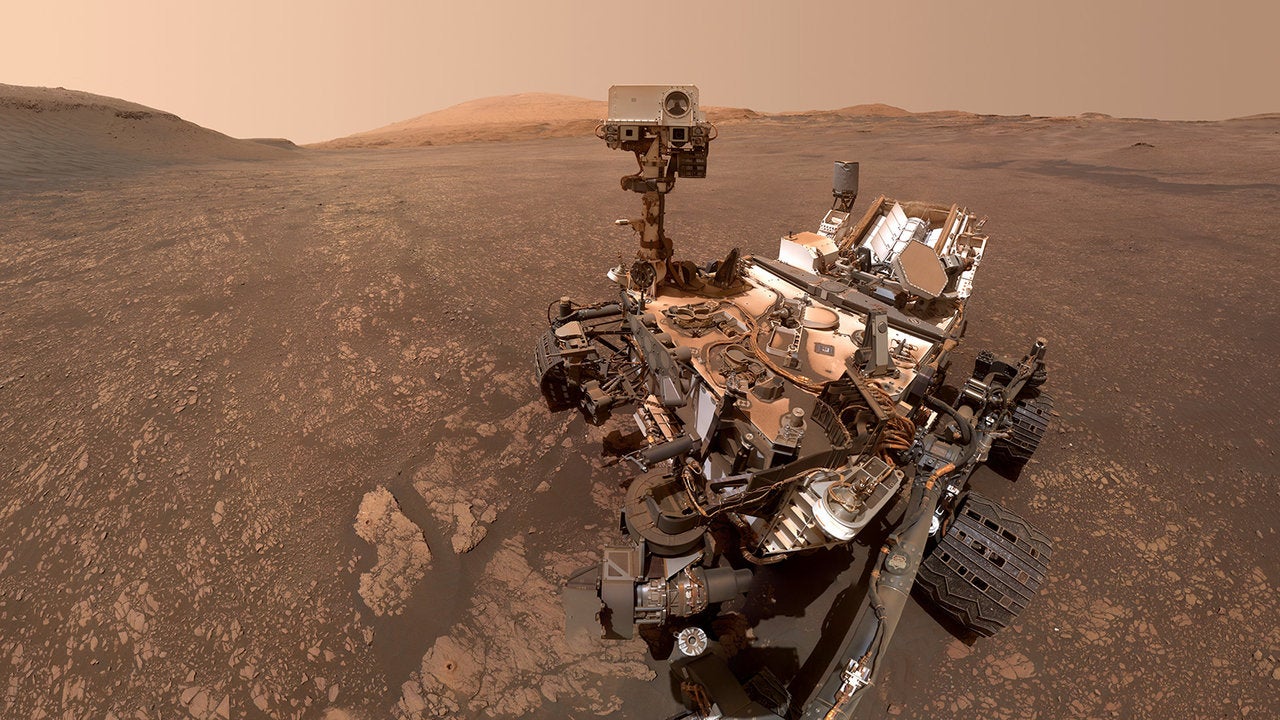The Independent's journalism is supported by our readers. When you purchase through links on our site, we may earn commission.
Nasa Curiosity rover has found previously undetected organic molecules on Mars
Study demonstrates a powerful new technique to further enable the search for life-signature molecules

Your support helps us to tell the story
From reproductive rights to climate change to Big Tech, The Independent is on the ground when the story is developing. Whether it's investigating the financials of Elon Musk's pro-Trump PAC or producing our latest documentary, 'The A Word', which shines a light on the American women fighting for reproductive rights, we know how important it is to parse out the facts from the messaging.
At such a critical moment in US history, we need reporters on the ground. Your donation allows us to keep sending journalists to speak to both sides of the story.
The Independent is trusted by Americans across the entire political spectrum. And unlike many other quality news outlets, we choose not to lock Americans out of our reporting and analysis with paywalls. We believe quality journalism should be available to everyone, paid for by those who can afford it.
Your support makes all the difference.Nasa’s Curiosity Mars rover has discovered previously unknown organic molecules on the Red Planet, an advance that could lead to the development of better tools in the search for life-signature chemical traces on other planets.
While the newly-found carbon-based compounds do not hold conclusive evidence of life on Mars, the study, published on Monday in the journal Nature Astronomy, suggests the rover’s on-board experiment technique, which didn’t require it to drill, could be an effective method to search for organic molecules in future space exploration missions.
One of the main missions of the Curiosity rover since its landing on Mars in August 2012 has been to look for traces of organic molecules and signs of life in the Red Planet’s ancient habitable environments in the Gale Crater.
But just as Nasa scientists were preparing to execute their “wet chemistry” experiment for the first time to test for the presence of organic molecules in rocks at the base of Mount Sharp on Mars, the rover’s drill broke, throwing the mission in doubt.
Nasa scientists then developed a revised system for the “wet chemistry lab” to test for organics in a bit of loose sand the rover had collected from the Red Planer’s Bagnold Dunes instead of drilling and pulverising rocks.
This change was critical, according to Nasa, since the on-board rover experiment only had nine cups of solvent that could each be used only once.
Since any trace quantities of organic compounds on Mars could break down easily when heated, the solvents help in performing chemical analysis without breaking down the molecules by converting them to derivatised forms.
From the experiment, the researchers found chemically-derivatised benzoic acid and ammonia in the loose sand samples.
The tests also indicated the presence of other molecules, including phosphoric, phenol, several nitrogen-bearing molecules and “and as yet unidentified high-molecular-weight compounds”.
“This derivatisation experiment on Mars has expanded the inventory of molecules present in Martian samples and demonstrated a powerful tool to further enable the search for polar organic molecules of biotic or prebiotic relevance,” the scientists noted in the study, led by astro-biologist Maëva Millan from Nasa’s Goddard Space Flight Centre.
After over a year without the use of the Curiosity Mars rover’s drill, Nasa engineers working from Earth finally fixed the tool in 2018, helping collect more samples from the Martian landscape.
Further test results are awaited. A future mission to the Red Planet in 2030 to collect the Curiosity rover samples is also in the works.
Join our commenting forum
Join thought-provoking conversations, follow other Independent readers and see their replies
Comments